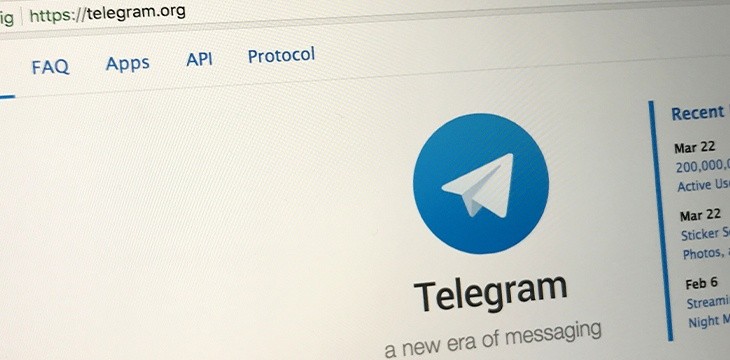|
Getting your Trinity Audio player ready...
|
The battle continues between Telegram and the U.S. Securities and Exchange Commission (SEC) over whether or not the company behind the popular messaging platform irregularly offered securities with its GRAM cryptocurrency in 2018 offering. Under deposition by the SEC, Telegram CEO Pavel Durov has been endlessly grilled and the company has been forced to hand over pertinent financial data. As a result of the legal battle, the names of several high-profile individuals and investment firms have been brought to the front lines for having invested in the project.
Telegram wrangled $1.8 billion out of investors when it announced GRAM to back its Telegram Open Network (TON) blockchain. However, the SEC asserts that the action violated securities reporting requirements, a claim Telegram and Durov have vehemently denied. According to court documents tied to the case, some of those who handed over large sums of money to Telegram include Micky Malka, a former board member of the Bitcoin Foundation and current partner in Ribbit Capital, and ABBYY Longvo founder and Band of Angels board member David Yang.
Malka was singled out during Durov’s deposition, the focus of questioning by the SEC. The commission wanted to know whether or not Telegram had determined which investors might be candidates to act as validators for the TON blockchain, to which Durov responded, “We didn’t put together a separate list of the purchasers who we would assume have experience in validating other networks, although it was obvious that certain investors… such as, for example, Micky Malka that we have discussed earlier, might… have experience in these processes of validation or at least were closely affiliated with parties that had experience in such processes.”
For his part, Yang presumably approached Telegram to consider investing in the project. Transcripts of the case include a conversation he had with the company’s VP, Ilia Prerkopsky, in 2018 in which Yang asked, “Tell me, if I myself, David Yang, without anybody’s mediation addressed Telegram directly in January and expressed a wish to invest, would I get a quote from you?” The response was a resounding yes.
Malka and Yang aren’t the only sources of funds available to Telegram during the GRAM sale. According to declarations that have been provided by witnesses, several investment funds, including Draper Drago, DRW Holdings, Kleiner Perkins, among others, also gave substantial amounts of money.
The problem isn’t with the investments themselves. Rather, it focuses on what the investors hoped to accomplish with the investments. For many, the GRAM funding was a way to invest in Telegram, which would not have been possible otherwise and this is one of the points that is being scrutinized by the SEC. A declaration presented to the courts from another witness, tied to investment firm Redpoint, indicated without providing names, “I became interested in investing in the Telegram ICO because I did not think it was possible to invest in Telegram, the company, directly.”
It’s back to court for Telegram and the SEC now. They are both scheduled to appear in the next round of arguments on February 18.

 03-04-2026
03-04-2026 




